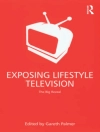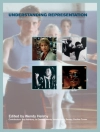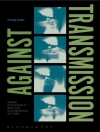Using the Regenerative economic model – also known as Doughnut Economics – Susan Hayward offers a thought-provoking sketch for a renewed, tentatively revolutionary approach to both film theory and film practice.This book attempts to answer the questions posed by T.J. Demos (in Against the Anthropocene, 2017): how do we find a way to address planetary harm and the issues it raises within the field of Film Studies? How do we construct a theoretical model that allows us to visualize the ecological transgressions brought about by the growth-model of capitalism which is heavily endorsed by mainstream narrative cinema? By turning to the model set out in Kate Raworth’s book Doughnut Economics (2017) and adapting its fundamental principles to a study of narrative cinema, Film Ecology proposes to show how, by using this model, we can usefully plot and investigate films according to criteria that are not genre/star/auteur-led, nor indeed embedded in anthropocentric theoretical models, but principles which are ecologically based. These arguments are brought to life with examples from mainstream narrative films such as The Giant (1956), Mildred Pierce (1945), Erin Brockovich (2000), Wall Street (1987), Hotel Rwanda (2004), and Missing Figures (2016).This approach will inspire film practitioners, film theorists, critics and analysts, film students and film lovers alike to consider how they might integrate this Doughnut model into their thinking or work as part of their process.
Susan Hayward
Film Ecology [EPUB ebook]
Defending the Biosphere – Doughnut Economics and Film Theory and Practice
Film Ecology [EPUB ebook]
Defending the Biosphere – Doughnut Economics and Film Theory and Practice
购买此电子书可免费获赠一本!
语言 英语 ● 格式 EPUB ● 网页 124 ● ISBN 9781000062243 ● 出版者 Taylor and Francis ● 发布时间 2020 ● 下载 3 时 ● 货币 EUR ● ID 7408903 ● 复制保护 Adobe DRM
需要具备DRM功能的电子书阅读器












